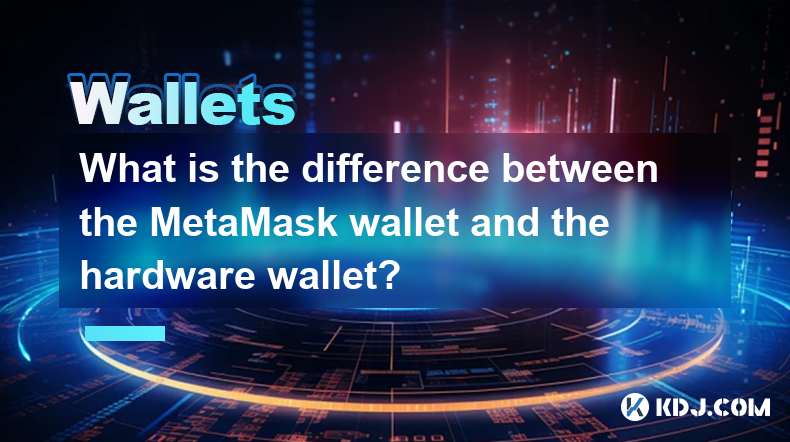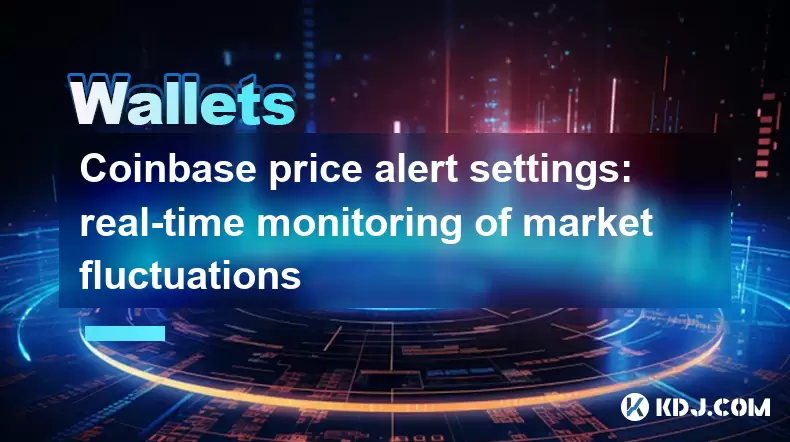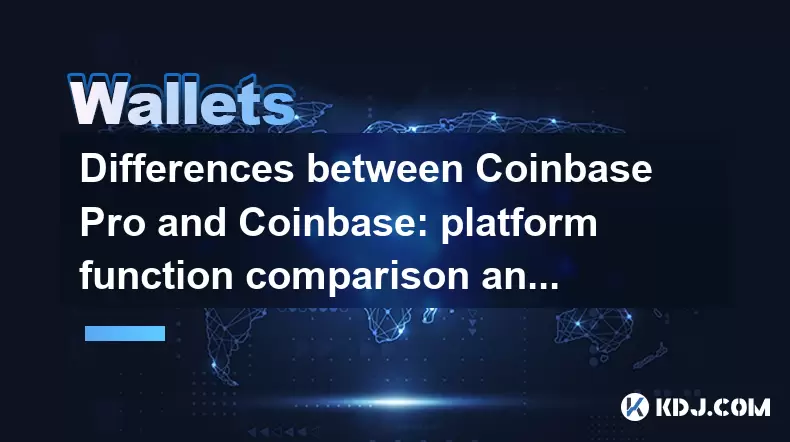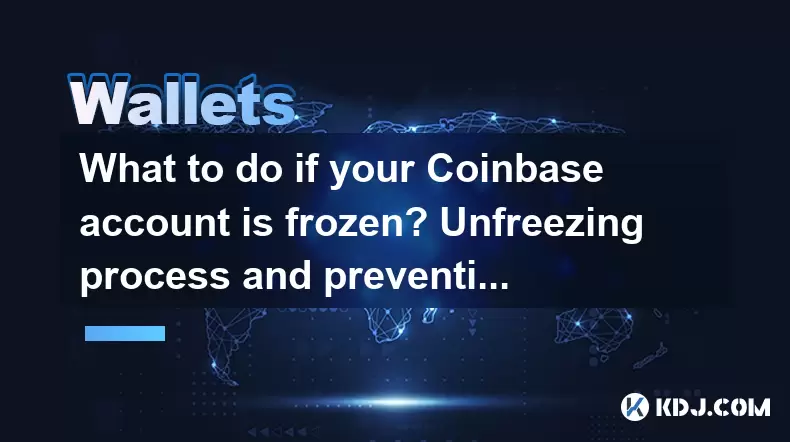-
 Bitcoin
Bitcoin $107,725.9156
0.27% -
 Ethereum
Ethereum $2,481.6786
1.84% -
 Tether USDt
Tether USDt $1.0003
0.01% -
 XRP
XRP $2.2154
1.26% -
 BNB
BNB $658.2447
1.42% -
 Solana
Solana $157.2028
4.24% -
 USDC
USDC $1.0000
0.02% -
 TRON
TRON $0.2788
0.91% -
 Dogecoin
Dogecoin $0.1655
1.00% -
 Cardano
Cardano $0.5714
2.67% -
 Hyperliquid
Hyperliquid $40.6187
6.30% -
 Bitcoin Cash
Bitcoin Cash $519.8117
5.84% -
 Sui
Sui $2.8338
0.59% -
 Chainlink
Chainlink $13.4150
0.60% -
 UNUS SED LEO
UNUS SED LEO $9.1205
-0.54% -
 Avalanche
Avalanche $18.0666
0.85% -
 Stellar
Stellar $0.2363
-0.46% -
 Toncoin
Toncoin $2.9550
2.57% -
 Shiba Inu
Shiba Inu $0.0...01151
-0.15% -
 Litecoin
Litecoin $86.2252
-0.57% -
 Hedera
Hedera $0.1498
1.51% -
 Monero
Monero $318.0620
3.18% -
 Polkadot
Polkadot $3.4174
-0.02% -
 Dai
Dai $1.0000
0.02% -
 Bitget Token
Bitget Token $4.5444
-1.05% -
 Ethena USDe
Ethena USDe $1.0003
0.00% -
 Uniswap
Uniswap $7.1773
-0.53% -
 Pepe
Pepe $0.0...09916
3.19% -
 Aave
Aave $274.7399
0.32% -
 Pi
Pi $0.5136
-2.06%
What is the difference between the MetaMask wallet and the hardware wallet?
MetaMask is a user-friendly software wallet for Ethereum and dApps, while hardware wallets offer superior security for offline crypto storage. Choose based on your needs.
Apr 04, 2025 at 02:42 pm

The difference between the MetaMask wallet and a hardware wallet is a topic of significant interest within the cryptocurrency community. MetaMask is a software wallet that functions as a browser extension or mobile app, primarily used for interacting with the Ethereum blockchain and decentralized applications (dApps). On the other hand, a hardware wallet is a physical device designed to store private keys securely offline, offering an additional layer of protection against online threats. Both types of wallets have their unique features, advantages, and use cases, making it essential for users to understand their differences to choose the best option for their needs.
What is MetaMask Wallet?
MetaMask is a popular software wallet that serves as a bridge between users and the Ethereum blockchain. It allows users to store, send, and receive Ethereum and Ethereum-based tokens directly from their web browsers or mobile devices. As a browser extension or mobile app, MetaMask provides easy access to decentralized applications (dApps) and decentralized finance (DeFi) platforms. Users can seamlessly interact with these platforms without needing to leave the comfort of their browser. Additionally, MetaMask supports multiple Ethereum networks, including the mainnet, testnets, and layer 2 solutions, offering flexibility for different use cases.
What is a Hardware Wallet?
A hardware wallet is a physical device designed to store private keys securely offline. These devices, such as Ledger and Trezor, are built to protect users' cryptocurrencies from online threats like hacking and phishing attacks. By keeping private keys offline, hardware wallets significantly reduce the risk of unauthorized access to users' funds. To use a hardware wallet, users typically connect the device to a computer or mobile device and interact with it through a companion software application. This setup allows users to sign transactions securely without exposing their private keys to the internet.
Key Differences Between MetaMask and Hardware Wallets
Accessibility: MetaMask is highly accessible as a browser extension or mobile app, allowing users to interact with the Ethereum ecosystem directly from their devices. In contrast, hardware wallets require a physical device and a companion application, which may be less convenient for frequent transactions but offer enhanced security.
Security: Hardware wallets provide superior security by storing private keys offline, making them less vulnerable to online attacks. MetaMask, being a software wallet, relies on the security of the user's device and internet connection, which can be a potential risk.
User Experience: MetaMask offers a user-friendly interface that is easy to navigate, making it suitable for beginners and those who frequently interact with dApps. Hardware wallets may have a steeper learning curve due to the need to understand and use the physical device and its software.
Cost: MetaMask is free to use, while hardware wallets come with a purchase cost, typically ranging from $50 to $200 depending on the model and features.
Backup and Recovery: Both MetaMask and hardware wallets provide methods for backup and recovery. MetaMask uses a seed phrase that users must securely store, while hardware wallets also use a seed phrase but store it on the device itself, offering an additional layer of protection.
Use Cases for MetaMask Wallet
Interacting with dApps: MetaMask is ideal for users who frequently interact with decentralized applications and need a convenient way to manage their Ethereum and tokens. Its integration with web browsers makes it easy to connect to various dApps and DeFi platforms.
Quick Transactions: For users who need to make frequent transactions, MetaMask's accessibility and ease of use make it a suitable choice. It allows for quick and seamless transactions without the need for a physical device.
Testing and Development: Developers and testers often use MetaMask to interact with Ethereum testnets and develop new dApps. Its support for multiple networks makes it a versatile tool for testing and development purposes.
Use Cases for Hardware Wallets
Long-term Storage: Hardware wallets are ideal for users who want to store their cryptocurrencies securely for the long term. The offline storage of private keys provides peace of mind and protection against online threats.
Large Amounts of Cryptocurrency: For users holding significant amounts of cryptocurrency, hardware wallets offer an extra layer of security. The risk of losing funds due to hacking or phishing is significantly reduced with offline storage.
Cold Storage: Hardware wallets are perfect for users who prefer cold storage solutions. By keeping private keys offline, users can ensure that their funds remain secure even if their computer or mobile device is compromised.
How to Choose Between MetaMask and a Hardware Wallet
Choosing between MetaMask and a hardware wallet depends on individual needs and preferences. Here are some factors to consider:
Security Needs: If security is the top priority, a hardware wallet is the better choice due to its offline storage capabilities. For users who need a balance between security and convenience, MetaMask may be sufficient.
Frequency of Use: For users who frequently interact with dApps and need quick access to their funds, MetaMask's accessibility makes it a suitable option. Hardware wallets are better suited for less frequent transactions and long-term storage.
Budget: MetaMask is free to use, making it an attractive option for users on a tight budget. Hardware wallets require an upfront investment but offer enhanced security features.
Technical Comfort: Users who are comfortable with technology and willing to learn how to use a physical device may prefer a hardware wallet. Those who prefer a more straightforward and user-friendly experience may opt for MetaMask.
Combining MetaMask and Hardware Wallet
Some users choose to combine the benefits of both MetaMask and a hardware wallet for a more comprehensive solution. This approach involves using MetaMask for daily transactions and dApp interactions while keeping the majority of funds securely stored on a hardware wallet. Here's how to set this up:
Connect Hardware Wallet to MetaMask: Many hardware wallets, such as Ledger and Trezor, support integration with MetaMask. Users can connect their hardware wallet to MetaMask, allowing them to sign transactions securely using the hardware wallet while still enjoying the convenience of MetaMask.
Transfer Funds: Users can keep a small amount of cryptocurrency in MetaMask for daily use and transfer larger amounts to the hardware wallet for secure storage. This way, they can benefit from the accessibility of MetaMask and the security of a hardware wallet.
Regular Backups: It's essential to regularly back up the seed phrases for both MetaMask and the hardware wallet. This ensures that users can recover their funds in case of device loss or failure.
Common Questions and Answers
Q: Can I use MetaMask and a hardware wallet together?
A: Yes, you can use MetaMask and a hardware wallet together. Many hardware wallets support integration with MetaMask, allowing you to sign transactions securely using the hardware wallet while still using MetaMask for its convenience and dApp interactions.
Q: Is MetaMask safe to use?
A: MetaMask is generally safe to use, but its security depends on the user's device and internet connection. It's essential to use strong passwords, enable two-factor authentication, and be cautious of phishing attempts to enhance security.
Q: How much does a hardware wallet cost?
A: Hardware wallets typically cost between $50 and $200, depending on the model and features. Popular options include Ledger and Trezor, which offer various models at different price points.
Q: Can I store multiple cryptocurrencies on a hardware wallet?
A: Yes, most hardware wallets support multiple cryptocurrencies, including Bitcoin, Ethereum, and various altcoins. Users can manage different types of cryptocurrencies on a single device, making it a versatile storage solution.
Q: What happens if I lose my hardware wallet?
A: If you lose your hardware wallet, you can recover your funds using the seed phrase provided during the initial setup. It's crucial to store the seed phrase securely and not share it with anyone to prevent unauthorized access to your funds.
Q: Is it necessary to use a hardware wallet if I only have a small amount of cryptocurrency?
A: While a hardware wallet offers enhanced security, it may not be necessary for small amounts of cryptocurrency. For small amounts, a software wallet like MetaMask may be sufficient, but users should still take precautions to secure their funds.
Q: Can I use MetaMask on multiple devices?
A: Yes, you can use MetaMask on multiple devices by syncing your wallet using the seed phrase. However, it's important to ensure that each device is secure to prevent unauthorized access to your funds.
Q: How do I back up my MetaMask wallet?
A: To back up your MetaMask wallet, you need to save the seed phrase provided during the initial setup. Store the seed phrase in a secure location, such as a safe or a secure note-taking app, and never share it with anyone.
Q: What are the advantages of using a hardware wallet over a software wallet?
A: The main advantage of using a hardware wallet over a software wallet is enhanced security. Hardware wallets store private keys offline, reducing the risk of hacking and phishing attacks. They are ideal for long-term storage and holding large amounts of cryptocurrency.
Q: Can I use a hardware wallet with mobile devices?
A: Yes, many hardware wallets support connectivity with mobile devices through companion apps. Users can connect their hardware wallet to their mobile device to manage their cryptocurrencies securely on the go.
Disclaimer:info@kdj.com
The information provided is not trading advice. kdj.com does not assume any responsibility for any investments made based on the information provided in this article. Cryptocurrencies are highly volatile and it is highly recommended that you invest with caution after thorough research!
If you believe that the content used on this website infringes your copyright, please contact us immediately (info@kdj.com) and we will delete it promptly.
- Coinbase, Altcoins, and Listings: What's the Buzz?
- 2025-07-01 00:30:11
- Chainlink's Bullish Signals: Investors Bet on Long-Term Value
- 2025-07-01 00:50:12
- CICADA Finance Soars on BNB Chain: A TGE Deep Dive
- 2025-07-01 01:30:11
- MicroStrategy's Bitcoin Bet: Holdings, Sell-Off Concerns, and S&P 500 Dreams
- 2025-07-01 01:30:11
- XRPL EVM Sidechain: Ethereum dApps Unleashed on XRP Ledger!
- 2025-07-01 01:35:11
- Bybit, Kraken, and Tokenized Stocks: A New Era for Trading?
- 2025-07-01 00:30:11
Related knowledge

Coinbase price alert settings: real-time monitoring of market fluctuations
Jun 29,2025 at 07:00am
Setting Up Coinbase Price AlertsTo begin real-time monitoring of market fluctuations on Coinbase, users can utilize the built-in price alert feature. This function allows you to receive notifications when a cryptocurrency reaches a specific price point. To access this setting, open the Coinbase app or log in via the web platform. Navigate to the 'Prices...

How to stake cryptocurrencies on Coinbase? Benefits and risks
Jun 27,2025 at 06:36pm
Understanding Cryptocurrency Staking on CoinbaseStaking cryptocurrencies involves locking up digital assets to support the operations of a blockchain network, typically in return for rewards. Coinbase, one of the most popular cryptocurrency exchanges globally, offers staking services for several proof-of-stake (PoS) coins. Users can stake their holdings...

Differences between Coinbase Pro and Coinbase: platform function comparison and analysis
Jun 29,2025 at 08:21am
Overview of Coinbase and Coinbase ProWhen exploring the cryptocurrency trading landscape, users often encounter two platforms under the same parent company: Coinbase and Coinbase Pro. While both are operated by the same organization, they cater to different types of users and offer varying features. Coinbase is primarily designed for beginners and casua...

What to do if your Coinbase account is frozen? Unfreezing process and preventive measures
Jun 30,2025 at 03:49am
Understanding Why Your Coinbase Account Might Be FrozenIf your Coinbase account is frozen, it typically indicates that the platform has detected suspicious activity or potential violations of its terms of service. This could be due to a variety of reasons such as unusual login attempts, high-risk transactions, or incomplete verification steps. Coinbase ...

How to contact Coinbase customer service? Support channels and response times
Jun 28,2025 at 01:29pm
Contacting Coinbase Customer Service: Support Channels and Response TimesIf you're a user of Coinbase, reaching their customer service team may become necessary for various reasons, such as account verification issues, transaction disputes, or technical difficulties. Understanding the different support channels available and what to expect in terms of r...

Coinbase advanced trading function usage tutorial: limit orders and market orders
Jun 28,2025 at 09:07pm
Understanding the Difference Between Limit Orders and Market OrdersWhen using Coinbase's advanced trading features, it is crucial to understand the fundamental difference between limit orders and market orders. A market order executes immediately at the best available price on the market. This type of order ensures that your trade goes through quickly, ...

Coinbase price alert settings: real-time monitoring of market fluctuations
Jun 29,2025 at 07:00am
Setting Up Coinbase Price AlertsTo begin real-time monitoring of market fluctuations on Coinbase, users can utilize the built-in price alert feature. This function allows you to receive notifications when a cryptocurrency reaches a specific price point. To access this setting, open the Coinbase app or log in via the web platform. Navigate to the 'Prices...

How to stake cryptocurrencies on Coinbase? Benefits and risks
Jun 27,2025 at 06:36pm
Understanding Cryptocurrency Staking on CoinbaseStaking cryptocurrencies involves locking up digital assets to support the operations of a blockchain network, typically in return for rewards. Coinbase, one of the most popular cryptocurrency exchanges globally, offers staking services for several proof-of-stake (PoS) coins. Users can stake their holdings...

Differences between Coinbase Pro and Coinbase: platform function comparison and analysis
Jun 29,2025 at 08:21am
Overview of Coinbase and Coinbase ProWhen exploring the cryptocurrency trading landscape, users often encounter two platforms under the same parent company: Coinbase and Coinbase Pro. While both are operated by the same organization, they cater to different types of users and offer varying features. Coinbase is primarily designed for beginners and casua...

What to do if your Coinbase account is frozen? Unfreezing process and preventive measures
Jun 30,2025 at 03:49am
Understanding Why Your Coinbase Account Might Be FrozenIf your Coinbase account is frozen, it typically indicates that the platform has detected suspicious activity or potential violations of its terms of service. This could be due to a variety of reasons such as unusual login attempts, high-risk transactions, or incomplete verification steps. Coinbase ...

How to contact Coinbase customer service? Support channels and response times
Jun 28,2025 at 01:29pm
Contacting Coinbase Customer Service: Support Channels and Response TimesIf you're a user of Coinbase, reaching their customer service team may become necessary for various reasons, such as account verification issues, transaction disputes, or technical difficulties. Understanding the different support channels available and what to expect in terms of r...

Coinbase advanced trading function usage tutorial: limit orders and market orders
Jun 28,2025 at 09:07pm
Understanding the Difference Between Limit Orders and Market OrdersWhen using Coinbase's advanced trading features, it is crucial to understand the fundamental difference between limit orders and market orders. A market order executes immediately at the best available price on the market. This type of order ensures that your trade goes through quickly, ...
See all articles

























































































